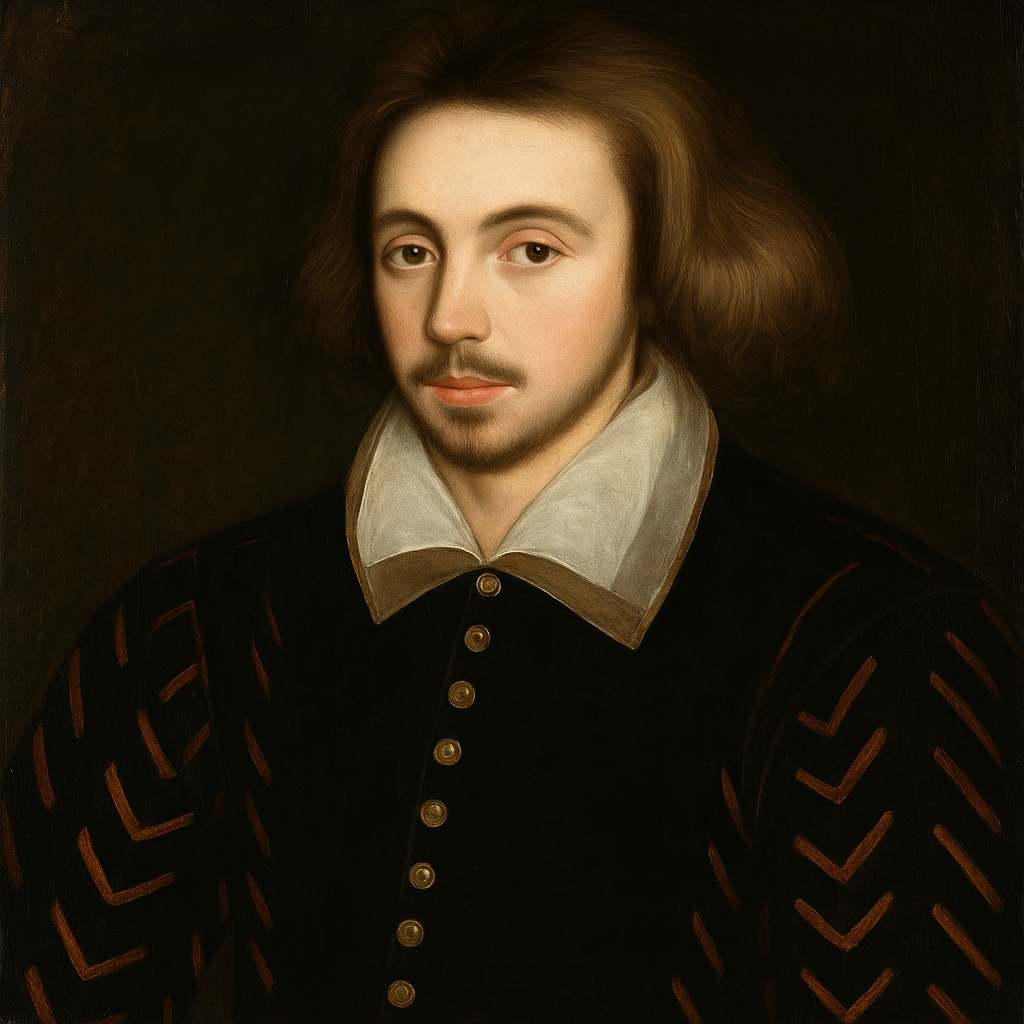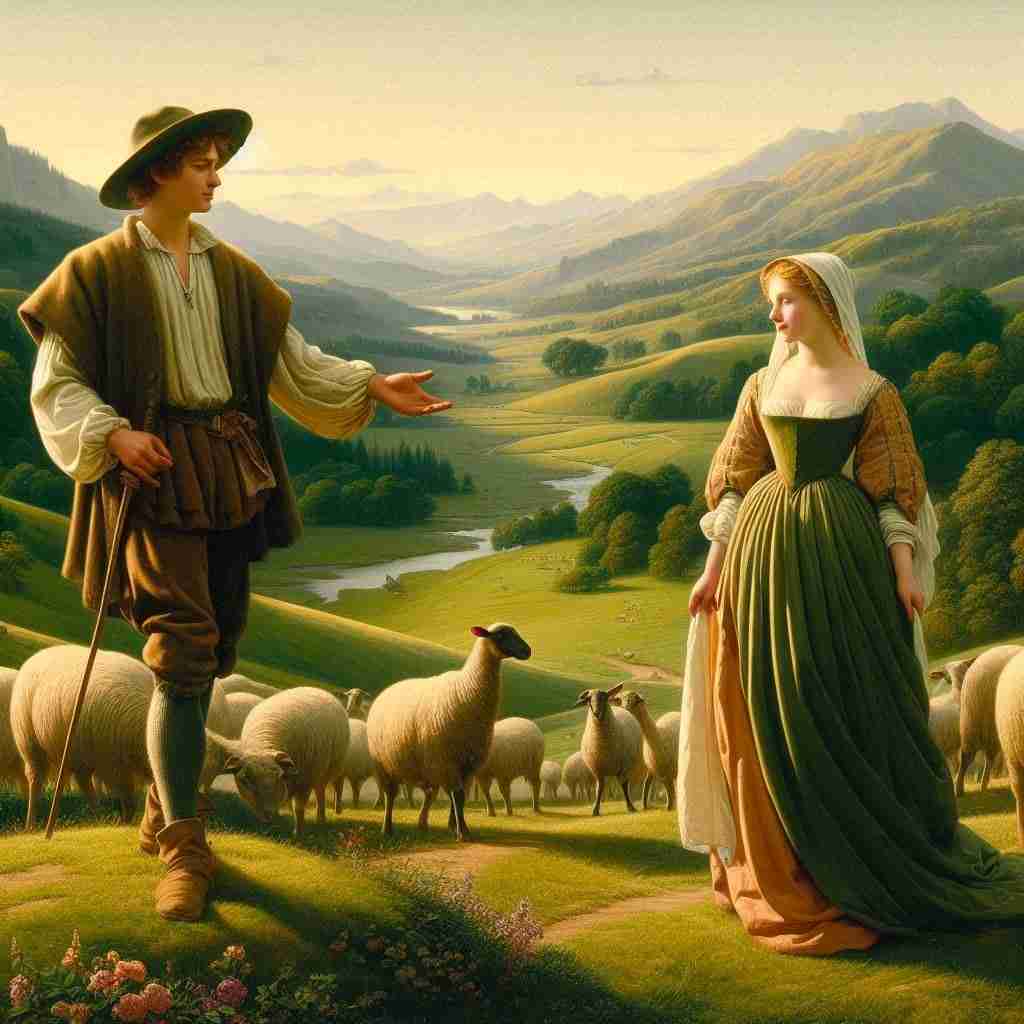1 Poems by Christopher Marlowe
1564 - 1593
Christopher Marlowe Biography
Christopher Marlowe was an English playwright, poet, and translator of the Elizabethan era. Born in Canterbury in 1564, the same year as William Shakespeare, Marlowe became one of the most influential dramatists of his time, despite his short life and career.
Marlowe was born into a humble family; his father was a shoemaker. Despite his modest background, he received a good education, attending the King's School in Canterbury and later Corpus Christi College, Cambridge, on a scholarship. At Cambridge, he studied to become a clergyman but eventually chose a different path.
During his time at university, Marlowe began writing poetry and plays. He completed his Bachelor of Arts degree in 1584 and his Master of Arts in 1587, though there was some controversy surrounding the awarding of his master's degree due to his frequent absences from the university.
Marlowe's first major play, "Tamburlaine the Great," was performed in London around 1587. The play, written in blank verse, was revolutionary in its use of language and its larger-than-life protagonist. It was immensely popular and established Marlowe as a prominent playwright in London's theater scene.
Following the success of "Tamburlaine," Marlowe wrote several more plays that would cement his reputation. These included "Doctor Faustus," "The Jew of Malta," and "Edward II." Each of these works showcased Marlowe's talent for crafting complex characters and exploring themes of power, ambition, and the human condition.
"Doctor Faustus," perhaps Marlowe's most famous play, tells the story of a scholar who sells his soul to the devil in exchange for knowledge and power. The play's exploration of the conflict between human ambition and moral responsibility continues to resonate with audiences today.
Marlowe's writing was characterized by its powerful and poetic language, often featuring grand speeches and soliloquies. He was known for his use of blank verse, which he helped popularize in English drama. His style significantly influenced his contemporaries, including Shakespeare.
In addition to his plays, Marlowe was also a poet. His most famous poem, "The Passionate Shepherd to His Love," is still widely read and studied. He also began a translation of Ovid's "Amores," though it was left unfinished at his death.
Marlowe's life was as dramatic as his plays. He was known for his unorthodox views and behavior, and there is evidence to suggest that he worked as a spy for Queen Elizabeth's government during his time at Cambridge and afterward. His exact role in these activities remains a subject of debate among historians.
Tragically, Marlowe's life and career were cut short. He died on May 30, 1593, at the age of 29, in Deptford, under mysterious circumstances. The official inquest stated that he was killed in a tavern brawl over a bill, stabbed above the eye by a man named Ingram Frizer. However, given Marlowe's involvement in espionage and his reputation for controversy, many theories have arisen about the true nature of his death.
Despite his short life, Marlowe's impact on English literature was profound. He pioneered the use of blank verse in drama, paving the way for Shakespeare and other playwrights. His characters, often ambitious, complex, and morally ambiguous, represented a new kind of dramatic hero.
Marlowe's work also pushed boundaries in terms of content. His plays often dealt with taboo subjects and challenged religious and political orthodoxies. "Edward II," for instance, is notable for its sympathetic portrayal of a homosexual relationship, which was highly controversial for its time.
The "Marlowe myth" has grown over the centuries, fueled by the dramatic nature of his life and early death. Some have even suggested that he faked his death and continued writing under the name of William Shakespeare, though this theory is not taken seriously by most scholars.
Today, Christopher Marlowe is recognized as one of the most important figures in English Renaissance drama. His plays continue to be performed and studied, appreciated for their poetic language, complex characters, and exploration of timeless themes. Marlowe's influence on the development of English theater and literature, particularly his contributions to the evolution of blank verse and the tragic hero, ensure his place as a pivotal figure in the history of English literature.
This text was generated by AI and is for reference only. Learn more
Username Information
No username is open
Unique usernames are free to use, but donations are always appreciated.
Quick Links
© 2024-2025 R.I.Chalmers (V2Melody).

All music on this site by R.I.Chalmers (V2Melody) is licensed under a Creative Commons Attribution-NonCommercial 4.0 International License.
Attribution Requirement:
When using this music, you must give appropriate credit by including the following statement (or equivalent) wherever the music is used or credited:
"Music by R.I.Chalmers (V2Melody) – https://v2melody.com"
Support My Work:
If you enjoy this music and would like to support future creations, donations are always welcome but never required.
Donate


